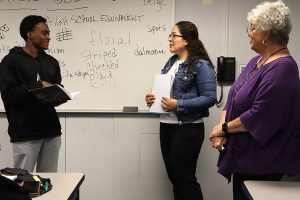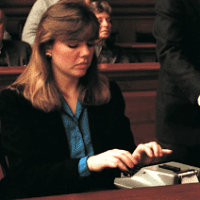Court reporting is an interesting, challenging profession which offers a wide-open job market, flexible work schedule, and excellent income potential ($64,672 average income). Sophisticated technology has created exciting work in broadcast captioning and stenointerpreting. Broadcast captioners can earn $70,000+ and work out of their homes.
The Associate of Applied Science Degree in the Court Reporting/Verbatim Technology program is designed to present a conflict-free theory and to develop the necessary machine shorthand skills leading to an eventual 225 words per minute writing speed. This will prepare the student to take the Illinois Certified Shorthand Reporter Examination, which is the professional certifying exam for the State of Illinois or the Registered Professional Reporters exam, which is the national certification exam.
Upon successful completion of the court reporting program, students will be able to:
- Write a realtime translation theory at a minimum of 86 percent accuracy.
- Perform an analysis of shorthand notes by reading back fluently.
- Demonstrate an understanding of law and legal terminology and medical terminology.
- Demonstrate knowledge of professional issues, continuing education, and the NCRA Code of Professional Ethics.
- Perform proper transcription using a computer-aided transcription software package.
- Demonstrate knowledge of the different employment opportunities for machine shorthand writers.
- Write and transcribe with correct punctuation in correct format testimony at 225 wpm, jury charge at 200 wpm, and literary at 180 wpm with at least 95 percent accuracy.
- Perform 40 hours of verified internship, preparing a 40-page complete transcript, summarizing the experience in one-page.
- Qualify for the national or state certification examinations which requires writing for five minutes at the following speeds: Two-voice, 225 wpm; Literary, 180 wpm; Jury Charge or General, 200 wpm; and taking a written knowledge examination.
Students must be admitted into the Court Reporting Program before registering for any other COR classes. A combination of two-voice, jury, theory and/or literary must be taken. General Education classes must be taken along with machine classes or credit given via transcript. A successful court reporter is a well-rounded individual, thus completion of a variety of academic classes is essential. Summer classes are mandatory.
Placement into college-level English on the Placement test is a requirement for COR 100. Students must have a typing speed of 45 wpm. Students must successfully pass COR 100 and OAT 170 before applying for Admission into the Court Reporting Program. To apply, submit a copy of college transcripts, a one-page personal statement of goals and commitment, and a letter of reference from a Certified Shorthand Reporter with business card attached to the Program Coordinator. Apply for admission after successfully completing COR 100.
The Machine Shorthand graduation requirements, which are satisfied within the courses above, are as follows:
- Completing at least 40 verified hours of internship.
- Passing the following five-minute speed tests:
- three 225 wpm;
- testimony with 95% accuracy;
- three 200 wpm jury charge tests with 95% accuracy;
- three 180 literary tests with 95% accuracy.
Upcoming Events
As the silent, “Keeper of the Record,” the life of the court reporter centers around words. The reporter takes testimony from people in all walks of life – engineers, doctors, attorneys, scientists, tradesmen – and every day new terminology is encountered. It is this aspect of reporting that makes it challenging, interesting, and exciting. After a few years of working, the reporter becomes well versed in many different areas of life.
To prepare for this challenge, students are encouraged to improve their literacy. They should read newspapers, books, and magazines. They should even read unusual items such as sewer covers and construction seals on sidewalks because the names of the companies that manufacture those items will come up someday.
A major component of the program is the development of English grammar, punctuation, and vocabulary skills. Legal Terminology, Medical Terminology, and Court Practicum are among the other courses that will prepare the student to function as a professional court reporter.
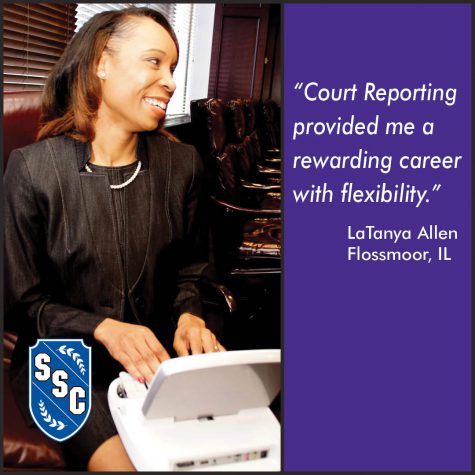
A.A.S. Degree
IDFPR Approved
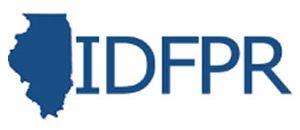
The Court Reporting/Verbatim Technology curriculum meets the academic requirements to sit for the State of Illinois Certified Shorthand Reporter examination through the Illinois Department of Financial and Professional Regulation (IDFPR).
What are the career opportunities?
The world of the professional court reporter is rapidly changing because of the sophisticated equipment that today’s reporter uses. These are some of the areas in which reporters may work and average salaries:
$64,672
Judicial Reporting
$35,000-
$75,000+
Broadcast Captioning
$35,000-
$65,000
Stenointerpreting or CART Reporters
$100-$200
per hour
Webcasting
* Figures on income were supplied by the National Court Reporters Association in February 2012.
SSC’s Court Reporting/Verbatim Technology Program is the only National Court Reporters Association (NCRA) approved court reporting program in the south suburban region.
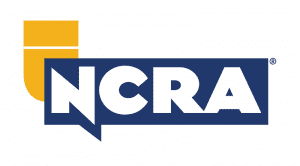 National Court Reporters Association
National Court Reporters Association
12355 Sunrise Valley Drive, Suite 610
Reston, Virginia 20191
Telephone: 800-272-6272
Website: www.ncra.org.
Frequently Asked Questions About the Program
Professional Licensure
The Court Reporting/Verbatim Technology curriculum meets the academic requirements to sit for the State of Illinois Certified Shorthand Reporter examination through the Illinois Department of Financial and Professional Regulation (IDFPR). The program is intended to prepare students for licensure and employment in Court Reporting in the State of Illinois.
Inquiry Form
If you have questions about the Court Reporting/Verbatim Technology Program at SSC that weren’t answered above, fill out this form and someone will get in touch with you.



